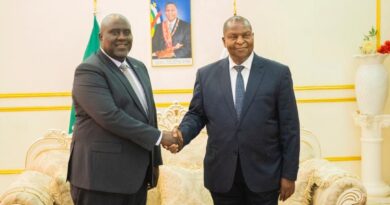Economic Analyst Proposes Dollar Restrictions in Zambia to Boost Local Economy
Economic analyst Mr. Kelvin Chisanga is advocating for a strategic move in Zambia to stabilize the local economy by prioritizing the use of the national currency, Kwacha, in domestic trade.
Mr. Chisanga recommends the temporary imposition of dollar sanctions in most local transactions through the issuance of a statutory instrument, aiming to mitigate the impact of the challenging economic environment.
He suggests that emphasizing the use of Kwacha in local trades could be a strategic move to curb the aggressive demand for US Dollars, particularly in a market where some participants and economic agents have been quoting prices exclusively in dollars.
The proposal aims to address the current imbalances observed in the trading scales, attributed to heightened demand for the US Dollar, while Zambia’s export performance, particularly in copper, has faced challenges.
The economic analyst emphasizes that trading exclusively in Kwacha for a defined period could help break the cycle of spiraling effects on the local currency.
He argues that the aggressive use of US Dollars in the market, driven by demand for key imports, has created an environment where the Kwacha is continuously losing purchasing strength.
Mr. Chisanga further notes that the local currency’s depreciation is linked to increased pressure from importers demanding hard currency, exacerbated by low levels of foreign exchange supplies within the domestic market.
The proposal to limit the use of the US Dollar in local transactions seeks to create a positive impact on Zambia’s economic performance ratios.
To implement this strategy, he strongly appeals to the government and key stakeholders to consider the temporary suspension of dollar use in local trades.
The aim is to encourage a collective boost in the local currency and safeguard the country’s economic stability amid challenging export conditions.
As discussions unfold around this proposed measure, stakeholders are expected to weigh the potential benefits of emphasizing the use of Kwacha against any potential challenges that may arise during the transition period.
Mr. Chisanga notes that the Zambian government will play a crucial role in determining the feasibility and implementation of such a policy to address current economic concerns.



